This morning seemed to be like any other morning.
I woke up early as usual (darn rainy season) and headed for the kitchen. Some people claim they can never eat anything in the morning, but I’m the complete opposite! After examining (and effectively taking care of) the contents of the fridge, I wasn’t completely satisfied though. Still hungry.
So… I headed for the cupboard. I remember storing some peaches there.
But wait! There’s one drawer in the countertop that I have never opened. Maybe there are some old dusty crackers in there? You never know.
Slowly I pulled open the drawer.
Nothing eatable in sight.
Just a bunch of old papers. They must have been lying there a long time, judging from their condition. Maybe they have something interesting written on them?
I took out the old papers from the drawer. Dust fell on my feet. That’s when I realized it was not a normal bunch of papers.
It was a manual, or hand book, of some sort.
“Hmm… strange place to store a manual. Maybe somebody tried to hide it” I thought to myself. Brushing away the dust from the cover, I saw some Japanese signs written on the front. They were a little bit too advanced for me, so I quickly turned to the next page.
That’s when I was blown away.
It looked like I had stumbled upon a secret old manual for martial arts. Presumably “tode” (or tuidi), the old predecessor of what we today call Karate!
I was speechless.
And peachless (I probably ate the last one yesterday). But I didn’t care about that now, breakfast could wait!
This was like a miracle!
I ran back to bed, to examine what I had just found. “Why would someone hide a secret old manual for combat here?” I thought as I switched on the reading lamp. Two seconds later I remembered something that could provide an answer. According to my sources, the neighbourhood that I live in (Shuri) was once a very rich place, famous for its many breweries of Awamori (Okinawan rice wine). This was big business back in the days, putting Shuri in a strong economical position.
But, as we all know, with money comes problems. Thugs, thiefs, pirates (yes, there existed pirates [called “wako”] not a joke) and other shady types. This, of course, posed a threat to the owners of the breweries, who wanted to ensure that their money and goods could be safely transported to, and from, customers.
So what did they do?
They hired martial artists as guards. People skilled in the “art of the fist”. The result was that Shuri became a “hot pot” for Okinawan martial arts. The elite gathered in one place, forming the basis of a branch of Karate that we today call Shuri-te.
Is one of those ancient warriors the author of the old secret Karate manual I’m holding? I don’t know, but it might be.
I’m not going to tease you anymore.
I actually deciphered about 20% of the manual. And I have decided to present it to you, my loyal reader.
The chapter I have come to understand most about is one entitled: “Four Precepts of Hard Fist Boxing”. “The four precepts are something not understood by many today, and mastering these will bring you supreme victory over anyone” according to the text.
I have decided to unveil these four precepts to you.
Since the description to every precept is written in short and cryptic (not to mention old) Japanese, me and my electronic dictionary have tried our best to provide an explanation as accurate as possible to every precept.
Are you ready for what you are about to read experience? Remember where you read it first, because soon this will be on every Karate page on the Internet.
Here we go:
Four Precepts of Hard Fist Boxing
Rule #1: Refuse
When engaged in combat you must be never be deceived by the opponent. He will try to fool you, taunt you, make traps for you and so on, but you must always refuse. Keeping focus on yourself only, ignoring the tricks of the opponent, refusing his games, is a sure way of assuring victory. What doesn’t bother you cannot hurt you. Rehearse this well.
Rule #2: Reduce
Exchanging blows with a foe is not an easy task, and it doesn’t get easier if you already are tired. Therefore, you should minimize the amount of techniques you use, reducing unnecessary movements, like striking the air in front of the enemy. This will give you more energy for the real blows and keep your moral up, since you are hitting your enemy instead of air. Using a lot of techniques may look impressive to the untrained eye, but in reality nothing could be more ineffective. This must be fully understood.
Rule #3: Reuse
The enemy might change, but like a river constantly changing, it is still the same river. Drawing upon experience from battles in the past you will immediately see what technique will be useful for this enemy, and what you can save for the next time. Remember, like a river, the form of a human never changes, just the person inside. Reusing the same strategy and techniques that has worked in the past, will save you much trouble. What worked in the past is most likely to work again. This must be practised.
Rule # 4: Recycle
Practising one technique, for many years, will do more good than practising many techniques, for one year. Using this single technique, that you have mastered, make the fullest use of it. Recycle it, and apply it everywhere, all the time, with full effort. Even though your enemy might know about your secret technique, though it doesn’t have to be your nickname like Eagl Claw Wang, he will never be able to withstand it if you have practised it with full commitment. He might see that there is bad weather, but he will never know when lightning strikes. Practise this thoroughly.
End of chapter.
That’s it.
Quite interesting, huh?
The manual is also packed with pictures but I haven’t really examined those yet. I’m looking at them now though, and it seems they depict items you can use as weapons… as a matter of fact, when I look a little closer, it seems like there is a picture of a… garbage bag.
A plastic garbage bag?!
They didn’t have garbage bags in the old ancient Karate disctrict of Shuri! There is something wrong here! You know what? I just flipped the page, and now I see pictures of hair dryers and electrical components! In color! What is going on?!
Wasn’t this supposed to be an old manual for Karate?!
I am… confused!
I see now that there are many more pictures… fishbones, apples, cans… even of motor bikes, banana peels and… computers!
COMPUTERS?! In a super secret old ancient manual of Okinawan Karate?
I HAVE BEEN FOOLED!!!
Look!
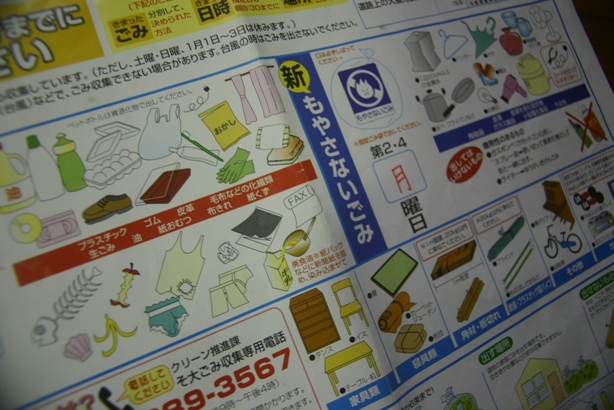
Here’s another page:
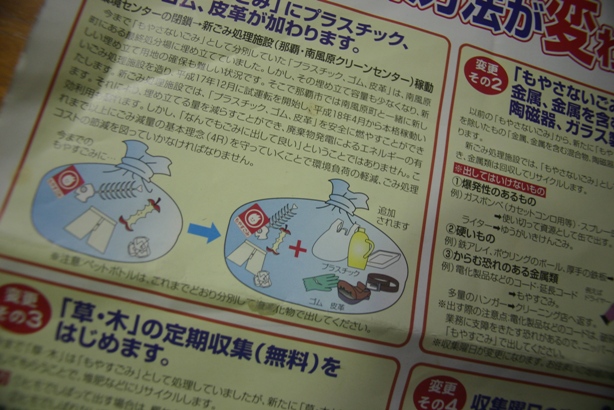
And now I see some strange text printed at the bottom of every page. Translated it becomes:
“Copyright: Okinawan Department of Garbage Disposal 2004. “
NOOO!!! It can’t be!
The “Four Precepts of Hard Fist Boxing” seems to be “Four Guidelines for Minimizing Garbage”!
I am speecheless… again.
I am so sorry.
Either my Japanese must be really bad, or my electric dictionary must have old batteries. I could swear I translated everything correctly! You know what?
Just forget this post.
I feel so ashamed.
If you are reading this post, it’s only because I haven’t had time to delete it yet.
Once again, I’m so sorry for wasting your time. I mean, really, what could we possibly learn about Karate from a pamphlet about garbage disposal?
I promise to write something intelligent the next time.
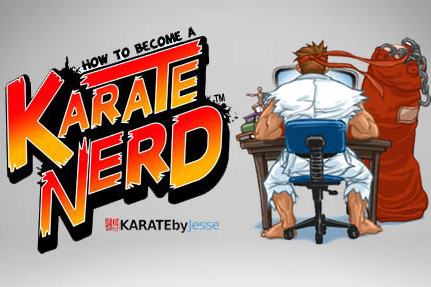
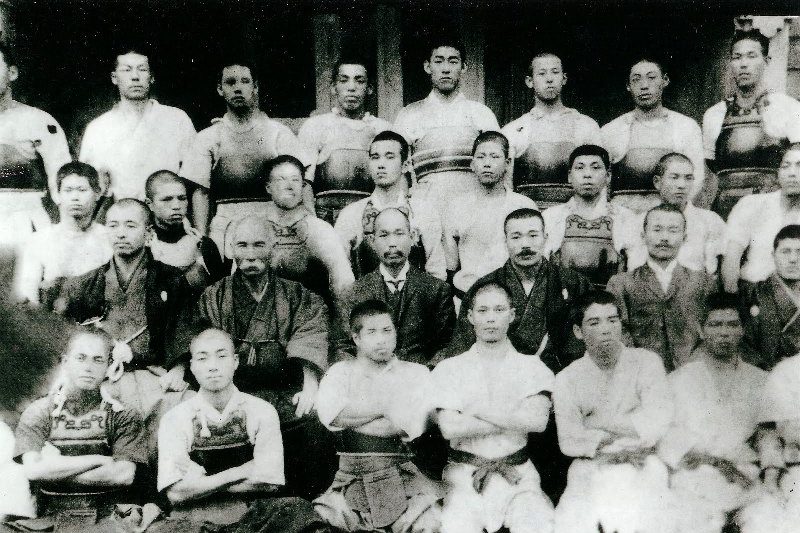
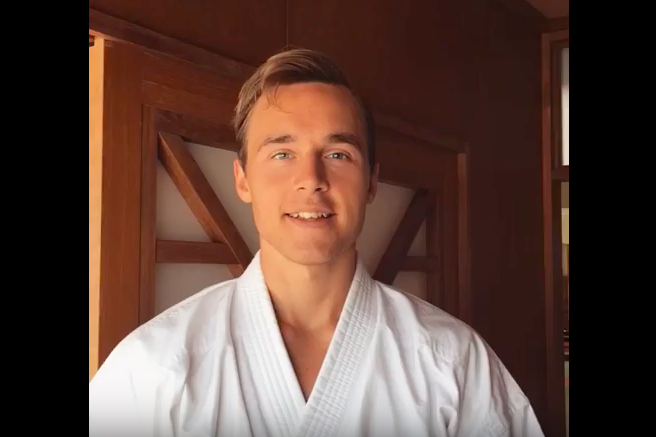
14 Comments